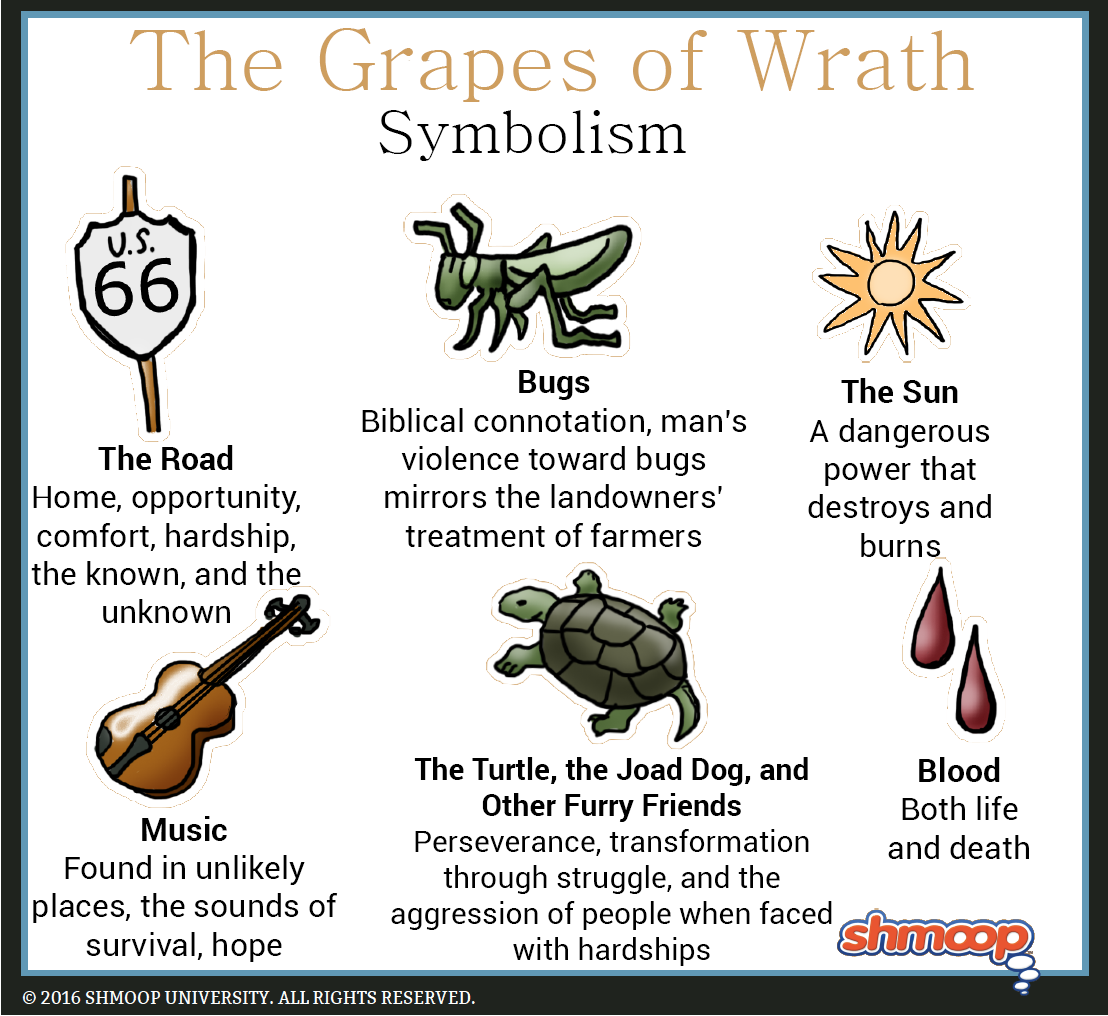Symbolism, Imagery, Allegory
 (Click the symbolism infographic to download.)
(Click the symbolism infographic to download.)
More Washed Out Than A "Toaster" Filter
Our narrator often describes the gold and yellow color of the Oklahoma landscape. He says, "The yellowing, dusty, afternoon light put a golden color on the land. The cornstalks looked golden" (4.70), and we can't help but think of gold and money when we notice yellow things in this novel. It's as though the land is reminding its inhabitants of how it once was rich, lush, and profitable.
Our narrator also talks about the "red country" and the "gray country" of Oklahoma, and we are reminded of the dismal reality of the Dust Bowl drought, and of the blood, sweat, and tears that have been poured into the land. The landowners and bankers are planting cotton in the place of corn, knowing full well that the cotton will bleed the soil dry, will take any last moisture from it.
One farmer describes this effect, saying, "You know what cotton does to the land; robs it, sucks all the blood out of it" (5.5). He knows that he can resuscitate his land if he is given a chance: "If they could only rotate the crops they might pump blood back into the land" (5.6).
If the blood went back into the land, then food would go back into the bellies of families like the Joads. As it stands, however, the land is bloodless and Oklahomans are streaming westwards.